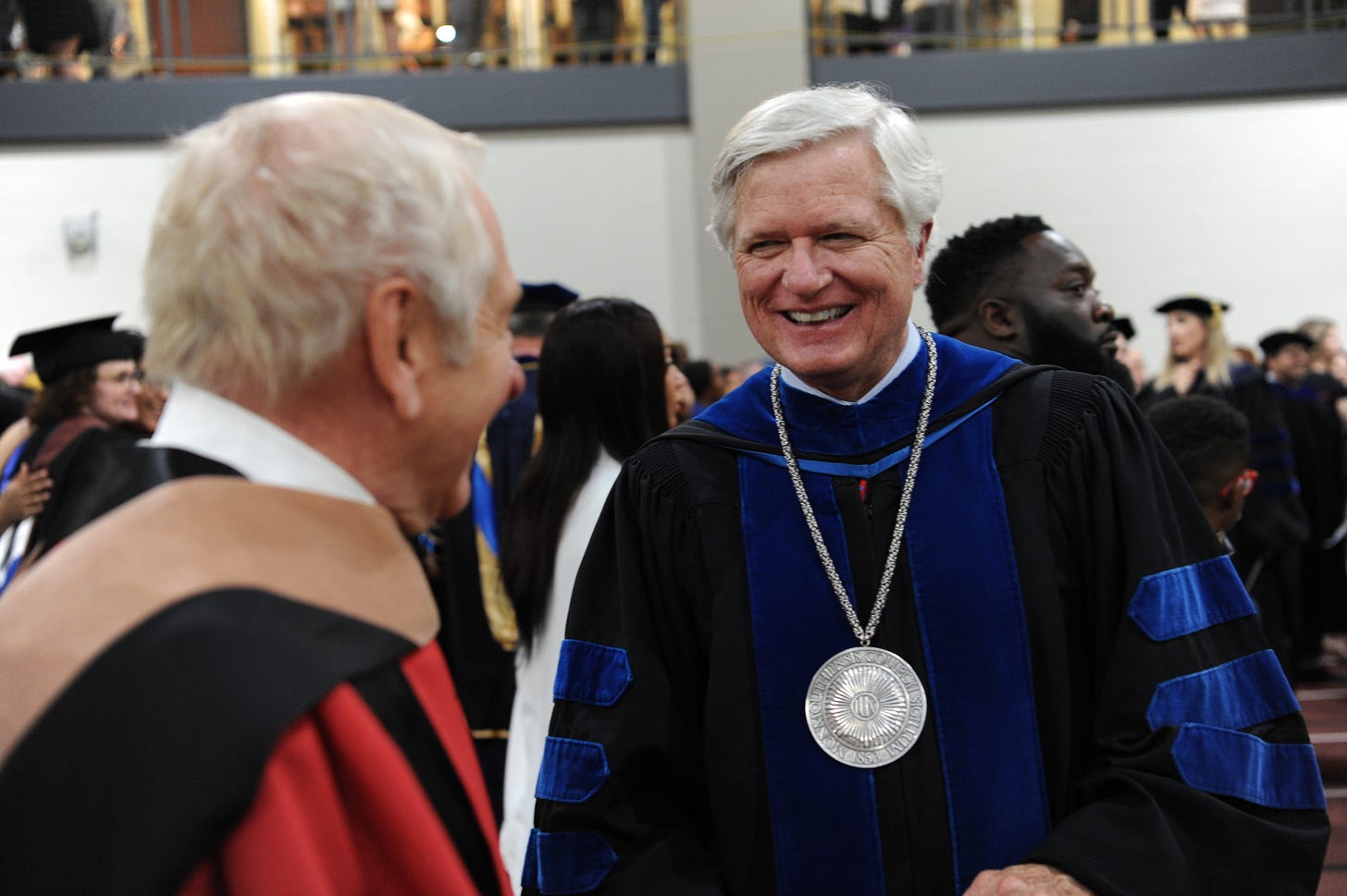After serving as president of Monmouth College for ten years, Clarence Wyatt, the 14th president, is set to retire on June 30th. President Wyatt has had a close and proud relationship with Monmouth since his first day. This historian has lived through the thick and thin of Monmouth College and reflected on the challenge of educational leadership through one of his idols, Abraham Lincoln.
“We exist in a very fluid, very challenging environment for higher education now. The theme of my inauguration— “Think Anew, Act Anew”—was taken from President Lincoln’s second annual message to Congress,” Wyatt said. “The country was, of course, in the darkest days of the Civil War. Lincoln said that the American people must at long last confront and eliminate the evil of slavery... ‘The dogmas of the quiet past are inadequate to the stormy present . . . as our case is new, so must we think anew and act anew.’”
Wyatt said that embracing that same spirit is one of the things that makes Monmouth better able to meet the challenges that are out there for higher education than other colleges and universities. “Understanding challenge and confronting it with determination and creativity are among the things that make Monmouth a special place.”
When asked if he thought Lincoln would be proud of him, Wyatt said, “That’s a great question, I think that two of President Lincoln’s greatest strengths as a leader were, first, his seeing himself as a servant to the people he had been chosen to lead. Second, Lincoln was by far the greatest writer who ever served as president of the United States. I would like to think that if President Lincoln could have observed my time as president of Monmouth, he would see that I tried my best to follow his example.”
Wyatt is no stranger to leadership. At his alma mater, Centre College in Danville, Kentucky, he worked as the Chief Planning Officer and Special Assistant to the President. He also served as the Pottinger Professor of U.S. history.
Music is important to Wyatt. On his thoughts about what music encapsulates Monmouth College, Wyatt said, “Well, of course, A Flame of White and Crimson, comes to mind first. It is such a beautiful alma mater. I always stand when it is played, and I encourage the audience to stand as well.” A Flame of White and Crimson was written in 1920 by Clara Schrenk.
Another example of music’s importance is during commencement, when Forever Young, sung by Bob Dylan, concludes Wyatt’s “Godspeed” to the graduating class.
“I have always said that if there is such a thing as a fountain of youth, it's to be found on the campus of a small residential liberal arts college,” Wyatt said. “If you can't stay young being around the students’ energy, their excitement, their sense of possibility, you might as well just pull the sheet over your head and give it up. That idea of Monmouth being a place of constant renewal, of perpetual youth—that song really captures it.”
On what was the best aspect of his presidency, and the work he has done on campus, Wyatt said, “That his first and overriding focus was on the students and that he worked as hard as he could for them.”
His final commencement ceremony at Monmouth College on May 19.
Ryan Phillips- Contributing Writer


